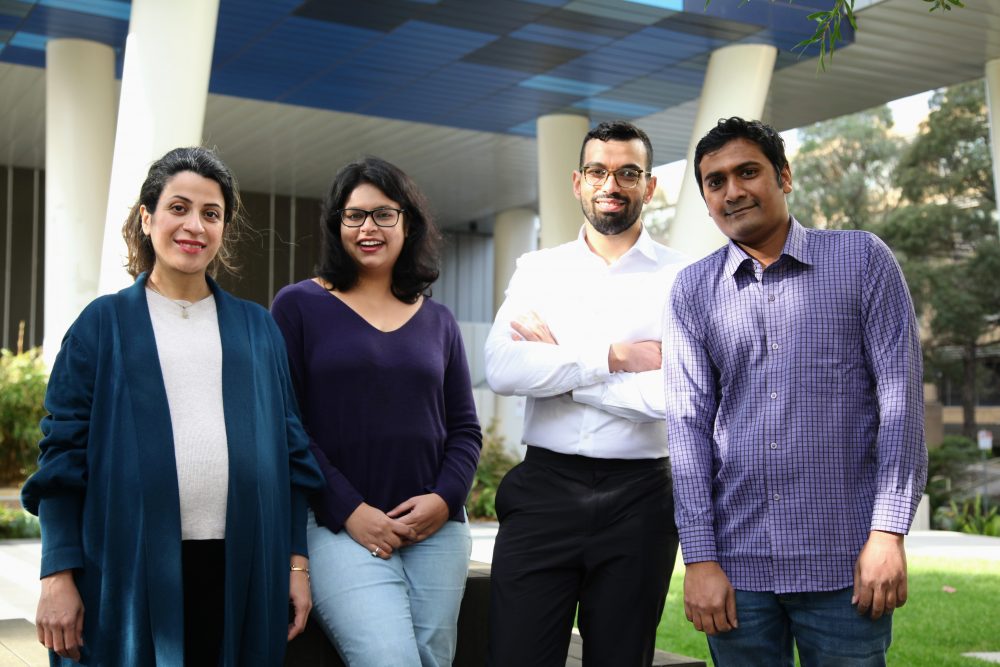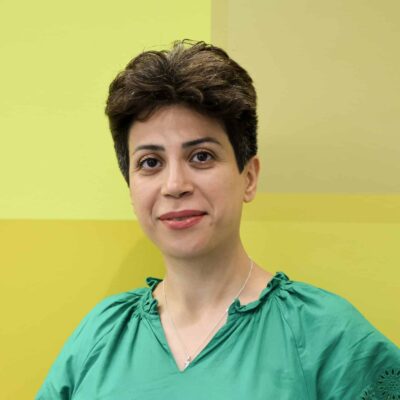Translational Tissue Engineering

Overview
This innovative new group led by Dr Mukherjee focuses on Women’s health, specifically in addressing the inadequacies in biomaterials for reconstructive surgery for disorders such as pelvic organ prolapse (POP). Arising primarily from vaginal birth injury, pelvic floor disorders affect millions of women worldwide, yet lack an effective treatment. In partnership with scientists, engineers and clinicians, the team has a keen interest in regenerative tissue engineering and translating new strategies to address the limitations in pelvic reconstructive surgery and alleviation of birth trauma.
The team undertakes a multi-disciplinary approach to repair tissues that have been damaged through childbirth incorporating material science, nanotechnology, stem cell biology and immunology. Current research centres on using solution electrospinning, 3D Printing, Melt electro writing and hydrogel formulations in the construction of degradable tissue-engineered surgical constructs. To this end, we utilise small and large pre-clinical model to determine host foreign body response and understand critical pathways that determine fate of implants. Furthermore, the group is investigating how maternal birth injury leads to POP, often decades after the initial trauma and employs injectable hydrogels for prevention of chronic pelvic floor disorder following traumatic birth injuries.
Diseases we research
Areas of focus
- DESIGN optimisation and engineering of polymer meshes, hydrogels, bioinks and coatings
- TISSUE engineering with adult stem cells and biomaterials to determine biocompatibility and foreign body response
- TREATMENT of Chronic POP using degradable cell-based nanofiber and 3D printed Meshes in pre-clinical models
- PREVENTION of POP by applying hydrogels as a therapeutic for traumatic birth injury to prevent prolapse of the pelvic floor
- UNDERSTAND the changes that occur within the pelvic floor after traumatic birth injury using biospectroscopy
Tackling POP utilising nanotechnology and 3D cellular bioprinting.
Dr Shayanti Mukherjee’s research program aims to advance women’s urogynaecological health using nanotechnology and 3D cellular bioprinting and help address unmet medical needs of up to 50 percent of childbearing women worldwide. Dr Mukherjee was Johnson & Johnson’s 2021 WiSTEM²D Scholars Award Engineering Winner.
Research Group Head | Dr Shayanti Mukherjee
Pelvic organ prolapse (POP) is a debilitating condition that affects many women, soon after or many years after vaginal birth. There is currently no reliable cure for POP. My research involves using adult stem cells from the lining of a woman’s own uterus, engineered with biodegradable materials, to develop effective treatments.

Meet the team

 Dr Saeedeh Darzi
Research Scientist
Dr Saeedeh Darzi
Research Scientist
 Dr Kallyanashis Paul
Postdoctoral Scientist
Dr Kallyanashis Paul
Postdoctoral Scientist
 Dr Hamid Bidkhori
Research Support Staff
Dr Hamid Bidkhori
Research Support Staff
 Holly Ung
Research Support Staff
Holly Ung
Research Support Staff
 Ayenew Abawa
PhD Student
Ayenew Abawa
PhD Student
 Elahe Bahremandi Toloue
PhD Student
Elahe Bahremandi Toloue
PhD Student
 Dr David Hennes
PhD Student
Dr David Hennes
PhD Student
 Mathew Lehrner
PhD Student
Mathew Lehrner
PhD Student
 Jennifer Hackett
Masters Student
Jennifer Hackett
Masters Student
 Pooya Almani
Visiting Scholar
Pooya Almani
Visiting Scholar
News from the lab
Student opportunities

Publication highlights


